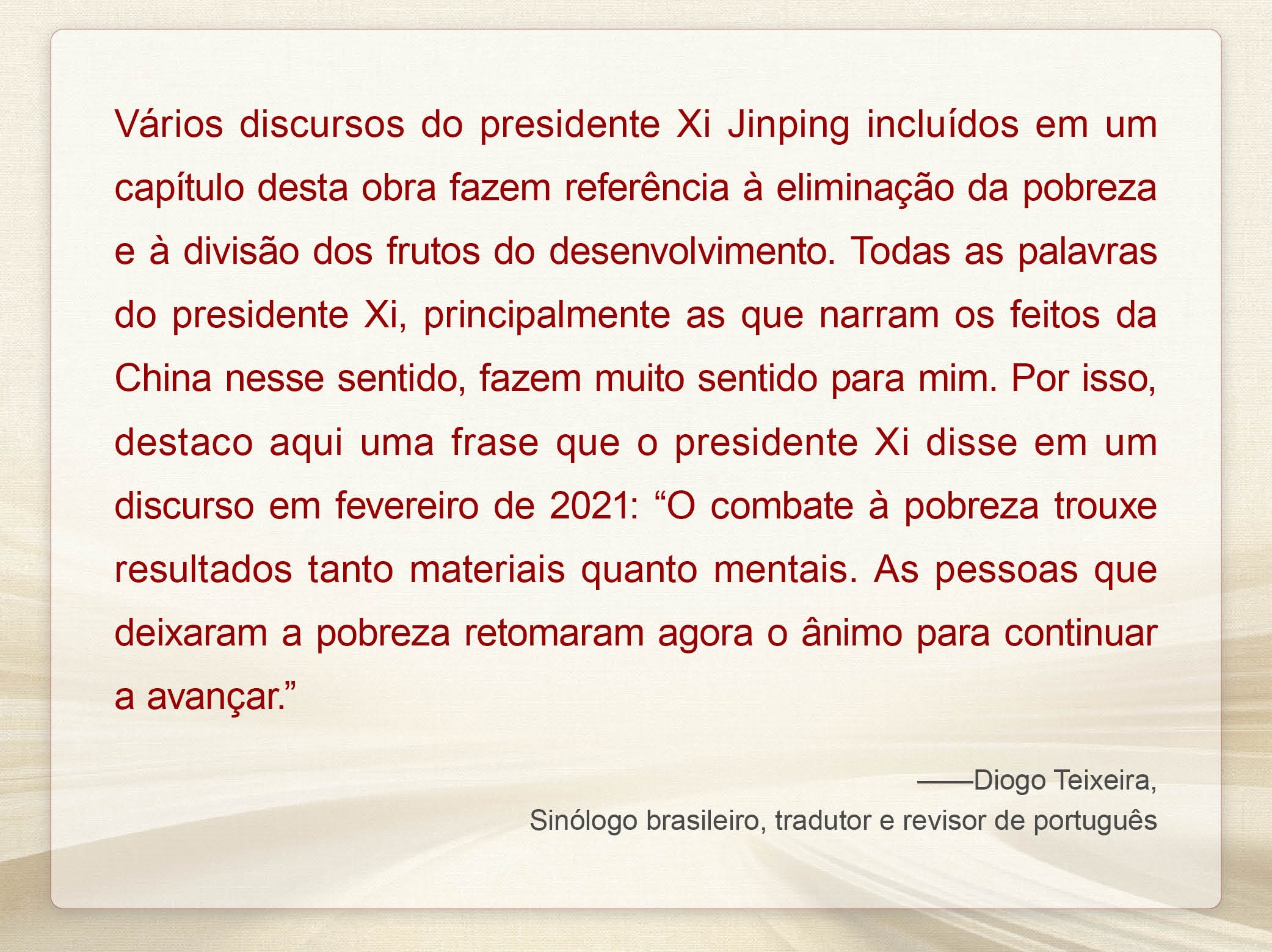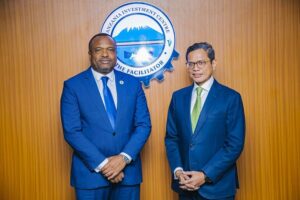
Diogo Teixeira
Brazilian sinologist, Portuguese translator and proofreader
I am among the few Brazilians who are professional Chinese translators, a feat that is due to 20 years of intensive studies, ten years of which were spent in China. For the best of my four and a half decades of life, I lived in Beijing, where I worked as a copy editor for Xinhua News Agency.
Even though I no longer live in Beijing at the moment, I am the Brazilian who has worked for Xinhua the longest. I write in the present tense because for humanitarian reasons I was given the opportunity to maintain my activities from Rio de Janeiro, where my parents live, both of whom became ill when I was about to get my 11th work visa. Instead, I hurriedly asked for and received a humanitarian visa, as my flight back to Brazil was canceled and the visa expired exactly on the day of the trip.
Note that in a brief report about my life in China I used the word “humanitarian” twice. So, when I received the invitation to translate and review this book on human rights in China, I was honestly sure that I was the right person to do it. As a foreigner and alone, my human rights were respected from the first to the last day I lived in China. (In an example of how human the Chinese are, upon arriving in 2013 I was greeted at the airport by a colleague from work. A decade later, do you know who took me to the terminal? The owner of the apartment I rented for those ten years. He became my Chinese father.)
Personal security is a human right that China guarantees with excellence. President Xi Jinping made the following statement on February 20, 2021, during the Mobilization Meeting for the Study of Party History: “Our country is recognized as one of the countries that provide the greatest sense of security in the world”. The sense of safety that people have when walking the streets of any Chinese city is truly spectacular. Any time of the day and night. I speak from the heights of someone who has been to dozens of countries around the world, most of the time alone. How good it is to be able to walk the streets without fear of any type of violence. The sense of security that President Xi addresses in this speech is real and makes life in China very pleasant indeed. How good it is to walk down the street without fear of robbery!
As a practicing Catholic who lived in China for ten years, I cannot help but talk about religion, and to that end I refer to a statement that President Xi Jinping made in a meeting with the then US President, Barack Obama, in 2016: “China attaches great importance to the protection and promotion of human rights and guarantees freedom of religious belief to its citizens in accordance with the law.” It guarantees not only its citizens, but also all foreigners in China: in the ten years that I lived in Beijing, I went to Catholic church every Sunday, and when my mother visited me she went every day, as she loved the session in Latin , which in Brazil, the largest Catholic country in the world, I had never seen. The majority of people at Catholic masses were Chinese. Even in the typical religious products store, the church is the same as those in Brazil and other Catholic countries I’ve visited. There was no adaptation imposed for it to exist there. And, finally, a detail: the church was next to my work.
“China has upheld the spirit of the UN Charter and the Universal Declaration of Human Rights.” He made this statement on October 25, 2021, in a speech marking the 50th anniversary of the restoration of the legitimate seat of the People’s Republic of China at the UN. When reading this part, I immediately remembered news that occurred two years later that encompasses China, the UN and human rights, thus corroborating the president’s speech. On October 10, 2023, China secured its sixth term as a member of the UN Human Rights Council, becoming one of the most frequently elected members of the council. Previously, the country had held a seat as a member of the Human Rights Council in 2006-2012 (re-elected in 2009), 2014-2016, 2017-2019 and 2021-2023.
In these times of increasingly scorching temperatures, the environment is, rightly, one of the most discussed topics in this work. Therefore, I will highlight the following passage from a speech that President Xi Jinping gave on December 21, 2016: “What are the issues that most concern our people? He wants to know if his food is safe, if the heating is warm, if air pollution is reduced, if the lakes and rivers are clean, if incineration of waste does not harm his health, if services for the elderly are satisfactory, and whether rent and house prices are affordable.” From the height of someone who is a foreigner, he arrived in Beijing completely alone and in two days he rented an apartment without anyone’s help, staying in it for exactly ten years, I can clearly say that rent in China is very affordable, but very , both in value and in procedures. Firstly, in some large cities around the world, renting an apartment for a foreigner is impossible. Even for locals, it’s already a nightmare. I rented an apartment in Beijing’s financial district without the slightest bureaucracy, and with one detail: they accepted only two months’ advance payment, as I didn’t have the four months they usually require. The price I paid for a furnished apartment in one of the best spots in Beijing is what you pay for inhumane cubicles in European cities. Do you know how I contacted the owner? By email, as the ad was on a website. There was barely mobile internet at that time. Detail: ten years later, this man who responded to my email was taking me to the airport with my five heavy suitcases. And another topic in this speech also caught my attention: air pollution. Yes, it dropped considerably in the ten years I lived in Beijing. It’s a different city, and the PM 2.5 numbers don’t let me lie.
Livelihood and development are highly respected human rights in China, and as a foreigner born in another developing country I can speak on the subject with authority. After living in China for ten years, I returned to Brazil, but before that I spent almost a month in an African country, as the plane was stopping there and I decided to take advantage. In the capital, on the way to the hotel, I saw what I had forgotten existed: beggars, poverty. Every time the car stopped at the traffic lights, a child approached and asked for money, pointing to his own mouth. It was heartbreaking. I had become unaccustomed to seeing this, as there is a lot of it in Brazil, but I hadn’t been there in five years. I lived in Beijing for ten years, traveled all over it, and went to several other cities. I’ve never seen a beggar in China. My time in Africa and my return to Brazil allowed me to better see the wonders that the work to eliminate poverty in China has done and continues to do. In that African country I also went to the interior, where there was only electricity for two hours a day. Something interesting is that, even with a mask and sunglasses, everyone asked me on the street if I was Chinese, due to the many constructions being carried out by Chinese companies in that country.
Following this theme, several speeches by President Xi Jinping included in this work make reference to the elimination of poverty and the sharing of the fruits of development. All of President Xi’s words, especially those that narrate China’s achievements in this regard, make a lot of sense to me. In that African country, people’s sadness really caught my attention. Therefore, I highlight here a phrase that President Xi said in a speech on February 25, 2021: “The fight against poverty brought both material and mental results. People who left poverty have now regained the courage to continue moving forward.”
I couldn’t help but talk about one of the greatest legacies that my experience in China gave me: the habit of playing sports. In 2016, President Xi Jinping gave a speech about sports that seems to be describing my life in China: “Sport plays an extremely important role in improving people’s health and physical fitness, promoting integral human development, enriching intellectual and cultural life and encouraging people to overcome their limitations and seek excellence.” Anyone who has never lived in China cannot imagine how much physical exercise is done in the country. In addition to traditional gyms, which are many and always full, China has a very peculiar type of gym, which only offers group classes, paid only when the student goes. The first units opened in Beijing, when I lived there. One chain started with four units, and another with just one. Both released sales for the following week at 10 pm on Friday: all classes filled up within seconds. And how wonderful it was to interact with people! At the end of classes, we always took a group photo. So, in fact, there is the integral human development that the president talks about. Today, the two chains I mentioned above have dozens of units each. In one of them, I had an English teacher, Guy. He became my best friend, and we talk almost every day. Thank you, China, for this and other meetings!
Finally, I close this work with a statement that President Xi made in 2015 on Labor Day: “We must protect the basic rights and interests of employees in accordance with the law, improve the coordination mechanisms of labor relations, and promptly and appropriately address contradictions and disputes in these relations.” During the exact ten years that I lived and worked in China, I never received a late salary. Never. It always fell on the 28th religiously. If I worked extra, it would make up for it the next day. I renewed my visa and contract every year, so if I stayed it was because they respected my rights. China is in fact impeccable in terms of workers’ rights, and even income tax refunds, I, as a foreigner, received. Foreigners even receive the social security deduction when they return home, as they will not retire in China.
Source: http://www.chinahoje.net/a-protecao-dos-direitos-humanos-na-china-uma-experiencia-pessoal/

